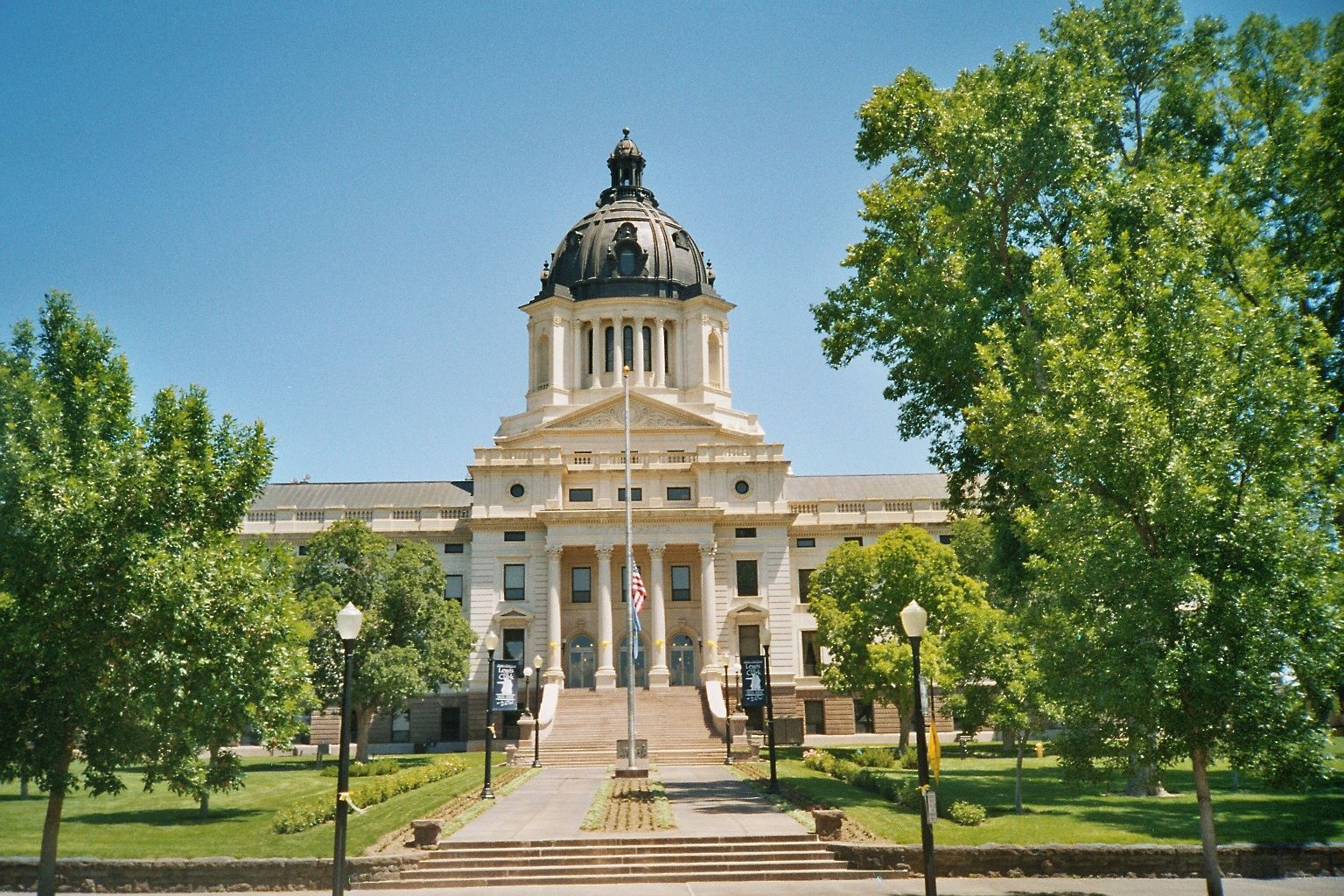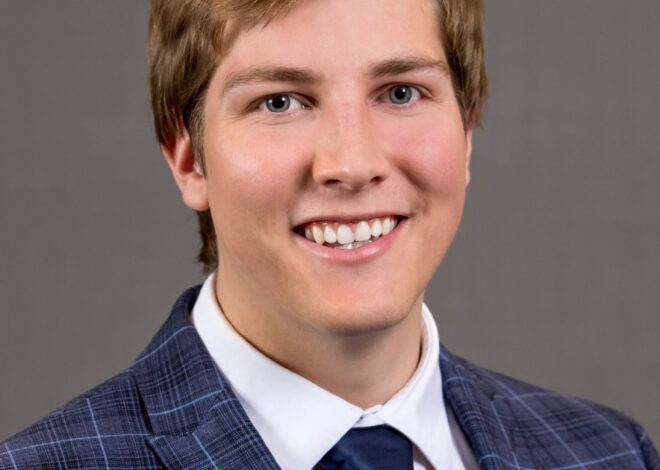
Senate Bill 149 protects adoption agencies, sparks controversy
People looking to adopt a child in South Dakota may face a new challenge besides the usual paperwork and expenses – religious adoption agencies can now turn potential adopters away because of the agencies’ religious or moral convictions.
Governor Dennis Daugaard signed off on Senate Bill 149 on March 10. The bill “provides certain protections to faith-based or religious child-placement agencies.”
LGBT adopters, divorcees, single parent adopters and other non-traditional families have been critical of this legislation because they believe it protects discriminatory adoption practices.
Regan Enos, a sophomore medical biology major, has 13 siblings, four of whom are adopted. She said she sees adoption as a blessing.
“Adoption is something that you think you’re doing someone else a favor, but you are receiving the biggest blessing yourself,” Enos said. “My family has been blessed to grow.”
Sponsors of the bill
The bill was sponsored by Sen. Alan Solano, R-Pennington County, and Rep. Steven Haugaard, R-Minnehaha County, in February.
SB 149 arose as a result of what certain adoption agencies saw happening across the country, Solano said.
“(There were) discussions of concern over, if they continue to use their criteria for adoption services, it would put their other services at risk,” Solano said.
The bill grants protection to religious adoption agencies in matters of tax plans, state funding, contracts, licenses, fees and enforcement actions.
“What we’re trying to do is protect the organization,” Solano said. “What we don’t want to have happen is the state or a bureaucrat coming in and saying that because of your criteria for adoption, you are no longer eligible for being a Medicaid provider or a sales tax exemption.”
Solano noted that the bill doesn’t change anything, it merely certifies the protection for these agencies.
Haugaard said certain adoption agencies were faced with being shut down without the protections laid out in SB 149. He also noted that this applies to centers of all faiths, not just Christian denominations.
“If they had to compromise their faiths to act on their mission, they effectively wouldn’t have a mission any longer,” Haugaard said. “They want to be assured that they can still exercise their faith in the context of the work that they do, and the work that they’ve done for decades. It’s not isolated to any particular faiths.”
Identifying beliefs
The bill requires child-placement agencies to have a “written policy, statement of faith or other document” identifying their beliefs. Based on that document, these agencies can turn away potential adopters.
Catholic Social Services includes infertility, marital status and a religious reference as their adoption criteria. CSS director Jim Kinyon said they place one to four infants each year.
“We require that you be infertile because we believe in the capacity to bring children into the world through natural means,” Kinyon said. “As a faith institution, we hold the definition of marriage as that between a husband and a wife. The state should not adopt those (same) standards.”
Sheila Weber, Lutheran Social Services Vice President of Children and Youth Services, said the agency plans to comply with all state and federal regulations, regardless of SB 149.
“LSS does not discriminate and does not intend to discriminate,” Weber said. “We were not part of the testimony in favor of the bill, and we continue to follow all nondiscrimination laws.”
Issues of discrimination
Rep. Ray Ring, D-Clay and Turner Counties, voted ‘no’ on the bill because there weren’t many alternatives for foster children, he said.
“I am receptive to the argument that faith-based agencies ought not be forced to place adoptions with people whose lifestyle they disagree with,” Ring said. “For foster children, there aren’t enough alternatives. As I said on the floor, my judgment is that it’s better for the common good not to allow this kind of discrimination.”
Section three of the bill also requires agencies to provide alternative adoption options to the people they turn away. With the issue of same-sex couples who wish to adopt from a religious group, Solano said they can seek services from a different agency.
“They could go to other nonreligious agencies, or they may even find a religious organization where that is not a criteria,” Solano said.
Haugaard, who works as an attorney, said that same-sex couples won’t be explicitly impacted by the bill.
“The state continues to place children in foster care with same-sex couples and allows for adoptions to same-sex couples,” Haugaard said. “(SB 149) has zero impact on same-sex couples.”
People can go through a private attorney for adoption services, Haugaard noted.
“The usual question about the bill is, well, won’t this prevent some people from being able to adopt? The answer is absolutely no,” Haugaard said. “If anybody desires an adoption any other way that doesn’t fit with one of these agencies, they can go to any one of the nearly 2,000 attorneys and have them assist them with a private adoption.”
Malikai Kayser, a member of Spectrum Gender and Sexuality Alliance, sees a problem with adopters that have to work their way to adoption through a private attorney.
“That’s just more fees you’re tacking onto a person trying to adopt someone,” Kayser, a sophomore majoring in criminal justice, said. “Why should you have to go to a private attorney that costs $10,000 more just to get this child?”
Samantha Jungers, a junior majoring in history and a member of Cru, sees the bill as “unnecessary.”
“I think (the bill) may be slightly unnecessary, but not as malicious as it has been presented to me by some of my friends,” Jungers said. “They think it’s more discriminatory than what is stated in the bill, and they think of it as something that would ban homosexual couples from adopting children at all, which I don’t think is what the bill says.”
Jungers grew up in the Catholic church and noted how important adoption is to her belief system as a pro-life advocate.
“As someone who is pro-life, adoption is so important and there are so many children who need to be adopted,” Jungers said. “I think I would be very careful of denying someone (from adopting) on the basis of a homosexual couple or a divorced person.”
Nate Keane, president of Spectrum and sophomore theatre major, said agencies should be careful about who they deny from adoption services.
“Why should religion dictate a child’s life when it comes to being adopted and having a chance at living a normal life and being part of a family pursuing their American dream?” Keane said.
Confusion arises while children await adoption
Haugaard has seen a lot of confusion arise from the bill, he said.
“I think there’s failure on the part of some media types to actually dig in and understand what the bill is about,” Haugaard said. “Hopefully some of the organizations that have put out bad information will go back and reflect on it and maybe clarify their previous stories.”
Solano said he wants loving families to have children and that it can be a challenge to find those loving families for children.
“I really want people to understand again that my motivation is to try and maintain the greatest amount of capacity for finding those loving families for children that are in need of a loving family,” Solano said. “I think that’s a challenge nationally, and I think it’s a challenge in South Dakota.”
Enos could see that same problem happening in South Dakota, as someone who’s seen adoption working firsthand.
“There are thousands of kids waiting to be adopted that need homes,” Enos said. “For me, it comes back to the kid. If a person’s heart says to adopt and give a child a forever family, they should pursue it and be a blessing to a child.”
This legislation will take effect on July 1, 2017.


